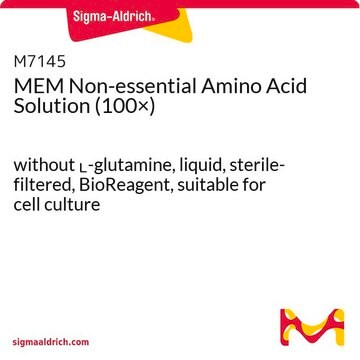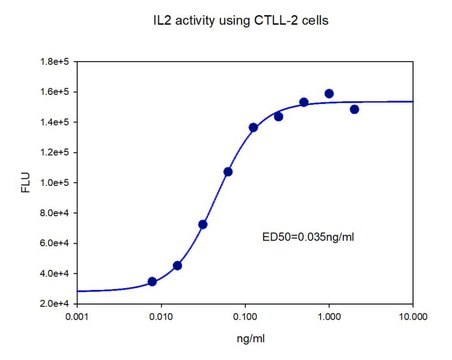M0200
Minimum Essential Medium Eagle
Alpha Modification, with sodium bicarbonate and ʟ-glutamine, without nucleosides, liquid, sterile-filtered, suitable for cell culture
Synonym(s):
αMEM, MEM
About This Item
Recommended Products
Product Name
Minimum Essential Medium Eagle, Alpha Modification, With sodium bicarbonate and L-glutamine, without ribonucleosides and deoxyribonucleosides, liquid, sterile-filtered, suitable for cell culture
Quality Level
sterility
sterile-filtered
form
liquid
technique(s)
cell culture | mammalian: suitable
impurities
Endotoxin, tested
components
phenol red: 0.011 g/L
glucose: 1.0 g/L
L-glutamine: 0.292 g/L
NaHCO3: 2.2 g/L
shipped in
ambient
storage temp.
2-8°C
Looking for similar products? Visit Product Comparison Guide
General description
also commonly purchased with this product
supplement
Storage Class
12 - Non Combustible Liquids
wgk_germany
WGK 1
flash_point_f
Not applicable
flash_point_c
Not applicable
Choose from one of the most recent versions:
Already Own This Product?
Find documentation for the products that you have recently purchased in the Document Library.
Customers Also Viewed
Our team of scientists has experience in all areas of research including Life Science, Material Science, Chemical Synthesis, Chromatography, Analytical and many others.
Contact Technical Service





